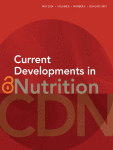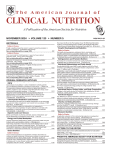3/30/2024 –
Abstract
Background
Inadequate nutrition and poor diet quality are associated with a heightened risk of diabetes. The connection between food insecurity measures and diabetes has been established, with evidence indicating that Supplemental Nutrition Assistance Program (SNAP) participation contributes to reductions in food insecurity. Recently developed nutrition security measures, defined as the ability to acquire healthful foods to prevent diseases, and their association with diabetes and SNAP participation are not yet understood.
Objectives
This study aimed to assess the relationship between food security and nutrition security in relation to diabetes overall and by SNAP participation and nutrition security as potential modifiers.
Methods
Secondary data analysis of cross-sectional pilot study data collected from adults in 5 US states (N = 517). Logistic regression mixed models included moderation analysis and clustering effects by state to address site-level confounding.
Results
Higher nutrition security scores among adults, after adjusting for confounders, were significantly associated with lower odds of diabetes risk (adjusted odds ratio = 0.59; 95% confidence interval: 0.40, 0.87; P value = 0.008). Statistically significant interaction effect of differences according to SNAP participation was observed for nutrition security (Phomogeneity/interaction = 0.021), adjusting for age, gender, race/ethnicity, education, employment, National School Lunch Program, Special Supplemental Nutrition Program for Women, Infants, and Children, food pantry use, household with children, survey mode, and food security. The association between food security and diabetes was not statistically significant overall. However, statistically significant interaction effect of differences according to SNAP participation was observed for food security (Phomogeneity/interaction = 0.047). Further, no interaction effect of differences in nutrition security was found between food security and self-reported diabetes/prediabetes (Phomogeneity/interaction = 0.250).
Conclusions
This study sheds light on the early exploration of the intricate relationship between nutrition security and diabetes. The findings suggest that a higher nutrition security score, after adjusting for confounders, was significantly associated with lower odds of diabetes risk. Notably, there were statistically significant interaction effects in these associations based on SNAP participation.







